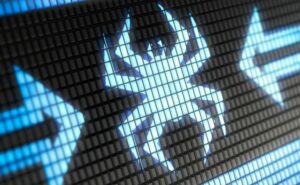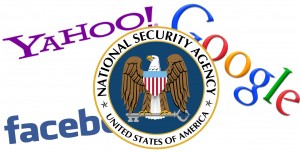Reading Time: 2 minutes
 The so called cyberwar between the US and China is about to take an interesting turn that could have significant consequences for one of the world’s most important strategic and economic relationships.
The so called cyberwar between the US and China is about to take an interesting turn that could have significant consequences for one of the world’s most important strategic and economic relationships.
The global and border less nature of the Internet makes it difficult to hold hackers accountable for criminal activities. When the hackers are working for a government as part of a cyberwar, what we used to call espionage, it is particularly difficult because of added political considerations. It is widely believed, and there has been much public evidence, that the Chinese military has been connected to extensive hacking activities against the US government, media organizations and businesses. Breaches at the White House email system, NY Times, Wall Street Journal and the Brookings Institute have all reportedly been traced to Chinese hackers.
The relationship between the US and China is complicated. While the interests and values of China conflict in many areas with US, China is America’s leading trade partner and the largest holder of US government debt. Until now, the US has chosen to deal with the alleged Chinese hacking diplomatically, quietly and not directly.
Until today.
The US Department of Justice has officially charge 5 officials of the Chinese military with illegal hacking to obtain trade secrets from a list of major American corporations that includes Alcoa World Alumina, Westinghouse Electric Co., Allegheny Technologies, U.S. Steel Corp., United Steelworkers Union, and SolarWorld. The indictment alleges attacks on 6 nuclear plants.
This is unprecedented. The US has prosecuted foreign cyber criminals, but never persons alleged to be working for a sovereign government.
The hackers allegedly work for the People’s Liberation Army’s unit 61398 in Shanghai, which is believed to specialize in Advance Persistent Threat (APT) attacks. Last year, the NY Times hired the security firm Mandiant to investigate a Chinese breach of its newsroom. Mandiant’s findings tied the attack to the unit 61398 facility in Shanghai. Mandiant CEO Kevin Mandia was quoted in the Economist magazine as saying “Either they are coming from inside Unit 61398, or the people who run the most-controlled, most-monitored Internet networks in the world are clueless about thousands of people generating attacks from this one neighborhood,”
The Chinese government and military has publicly denied all involvement in alleged cyber hacking. It appears that they will now have their day in court.
This comes at a time of increased tensions between China and its neighbors, Vietnam, Japan and the Philippines. China has recently been asserting expansive rights over the South China Sea and islands that Japan and the Philippines claim as their own. The United States is a very interested party because it has treaty obligations to defend Japan and the Philippines and the US Navy has defended the sea lanes of the South China Sea since the end of World War II.
The Justice Department’s efforts to bring cyber criminals and illegal hackers to justice is laudable, but the consequences may be felt far beyond the court room. Diplomats and bureaucrats may have as much impact on the outcomes as Judge’s and lawyers.
START FREE TRIAL GET YOUR INSTANT SECURITY SCORECARD FOR FREE
- blockchain
- coingenius
- cryptocurrency wallets
- cryptoexchange
- cyber security
- cybercriminals
- Cybersecurity
- CyberSecurity Comodo
- department of homeland security
- digital wallets
- firewall
- it security
- Kaspersky
- malware
- Mcafee
- NexBLOC
- plato
- plato ai
- Plato Data Intelligence
- Plato Game
- PlatoData
- platogaming
- VPN
- website security
- zephyrnet













